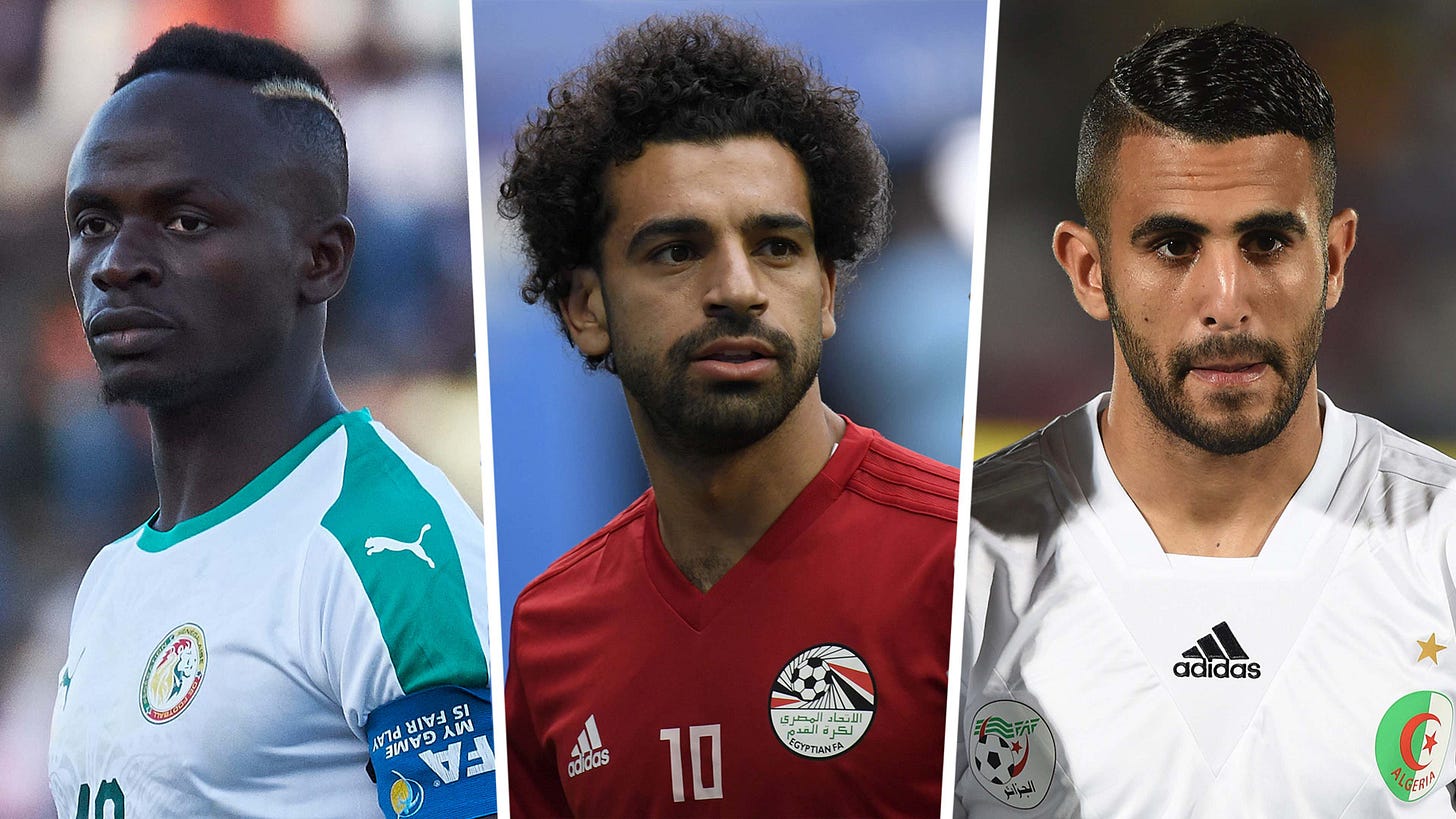Three Decades Later, Africa Awaits George Weah's Successor
Liberia's Weah was the first non-European to win the Ballon d'Or, in 1995, and there have been five others like him since. Weah, though, remains the only one from Africa.
Lionel Messi took receipt, last Monday, of the eighth Ballon d'Or of his illustrious career—more than anyone in the history of the sport.
The only thing less probable than the Argentine's collection of football's most coveted individual award being matched anytime soon, it seems, is the likelihood of an African player winning the award.
The last (and first) to do so was George Weah, the striker who won it the very year—1995—the Ballon d'Or became accessible to non-European players. Unprecedented as his success was, the body of work that culminated in Weah's historic feat, in retrospect—and certainly by modern standards—is hardly outstanding.
He did finish the 1994/95 Uefa Champions League campaign as topscorer, but only registered five goals in the first half of that calendar year for Paris Saint-Germain, his employers at the time. From that point till December 1995, when he was deservedly named recipient of the gleaming ball-on-rocks, following a move to AC Milan, Weah netted just 10 more times across all competitions.
And whereas the players who won the Ballon d'Or either side of his triumph—Hristo Stoichkov and Matthias Sammer—lit up not only club football but also major international competitions (Stoichkov at the 1994 Fifa World Cup, Sammer at Euro ‘96) during that run of award-winning displays, Weah in the colours of lowly Liberia was undistinguished despite his personal heroics.
Still, Weah's achievement represented a watershed moment in football's evolution as a truly global affair, opening the door for players from outside the Old Continent to finally gain the grandest recognition attainable; nearly half (13) of the next 27 Ballons d'Or handed out have been received by non-Europeans (Messi being the most predominant among the lot).
None of those were Africans, though, and Weah's accomplishment now feels very much like an anomaly, a ceiling of glass that gets reinforced each passing year.
Such limitations, though, definitely aren't because Africa has lacked world-class talent.
It's been two decades since an African footballer failed to garner any votes in the Ballon d'Or poll, with 13 breaking into the top 10 since. Six of those have come in the last seven years, the highest of which was Sadio Mane's finish as first runner-up behind then Real Madrid star Karim Benzema (who is, well, of African extraction).
Despite these recent strides, however, it's almost as though Africa has never been farther away from bagging another Ballon d'Or trophy, especially as we enter a period where the continent's prospects of producing Ballon d'Or-worthy candidates is as bleak as it's ever been post-Weah.
The 'golden' generation that spawned the likes of Samuel Eto'o Fils, Didier Drogba and Yaya Toure–11 Ballon d'Or top 15 finishes between them—is, of course, long-gone, but even the class of African stars that succeeded theirs is also now on the brink of oblivion.
Mane (also 4th, 2019) and Riyad Mahrez (7th in 2016) have already moved to the Saudi Pro League—a destination that, despite being football's hottest right now, draws mainly players in the twilight of their careers—and Mohamed Salah (6th, 2018; 7th, 2021) would soon head in that direction, too, if the ambitious and relentless Saudi poachers have their way.
That would leave Victor Osimhen, unless there is some big move for another player in the offing, as the only African with a realistic shout of winning the Ballon d'Or in the foreseeable future—a shout that would only be amplified if he does upgrade from Napoli to one of Europe's powerhouses.
(Another noteworthy mention is Osimhen's compatriot, Milan's Samuel Chukwueze, who abounds with potential but hasn't been at his electrifying best since arriving from Villarreal last summer).
You get the sense, though, that even the platform of a Real Madrid or Barcelona alone wouldn't be lofty enough to elevate the incredibly prolific Osimhen—who has, in any case, already overtaken Weah as far as Serie A scoring records are concerned—to the heights required to bring home Africa's second Ballon d'Or.
Even in an era where, with the shadows of Ronaldo and Messi fading and no longer imposing, the Ballon d'Or field is set to be a lot more open than it has been in the last decade-and-half, it would still likely take only something extraordinary for an African to have a fair shot.
Six years spent rewriting Liverpool and English football history hasn't helped Salah much, after all, neither did Mane enjoying a 2021/22 run during which he hardly put a foot wrong nor Mahrez winning the Treble this year suffice (that, to be fair, wasn't enough for even Erling Haaland).
It increasingly feels like the bar is perched just a bit higher for African footballers (the Asians, too, might have genuine cause for complaint in this regard); so high, in fact, that only the truly spectacular—winning the World Cup or, just short of that, a really extraordinary year for club and country—could force the issue and tip the scales in their favour.
The task is surely harder now than it was in Weah's day, isn't it?
Whatever—or, rather, whoever—it would take is anyone's guess, but the wait, even by very optimistic estimates, could yet go on much longer than it has already lasted.








